1. Introduction
2. What is Digital Marketing?
3. Understanding SEO (Search Engine Optimization)
- Benefits of SEO
- Challenges of SEO
4. Decoding PPC (Pay-Per-Click) Advertising
- Advantages of PPC
- Limitations of PPC
5. Key Differences Between SEO and PPC
- Cost
- Visibility and Ranking
- Targeting
- Credibility and Trust
6. Choosing the Right Strategy for Your Business
- Analysing Business Goals
- Budget Considerations
- Competition Analysis
- Timeframe for Results
7. Combining SEO and PPC for Optimal Results.
8. Finding the Right Digital Marketing Agency in Chandigarh
- Experience and Expertise
- Client Testimonials and Case Studies
- Customised Solutions and Strategies
- Communication and Reporting
9. Conclusion
In today’s digitally-driven world, businesses are constantly seeking ways to improve their online presence and attract more customers. Digital marketing has emerged as a powerful tool, and two of the most popular strategies are Search Engine Optimization (SEO) and Pay-Per-Click (PPC) advertising. This blog, “SEO vs. PPC: Choose What Digital Marketing Strategy Suits Your Business,” will help you to understand the differences between SEO and PPC and guide you in choosing the right strategy for your business. If you’re looking for a reliable digital marketing agency in Chandigarh, we’ll also provide tips on finding the perfect match for your needs.
What is Digital Marketing?

Before diving into SEO and PPC, it’s essential to grasp the concept of digital marketing. Digital Marketing is a dynamic strategy that harnesses internet-based technologies to promote products or services. Leading digital marketing agency in Chandigarh leverages various online channels like social media, search engines, PPC (Pay Per Click), email marketing, and content creation to reach and engage the target audience. A reputable agency can enhance brand visibility, drive website traffic, and generate leads through strategic planning, data analytics, and optimization. In the competitive market, a reliable marketing agency ensures businesses stay ahead by creating tailored campaigns, fostering customer relationships, and delivering measurable results. With expertise in this domain, they empower local businesses to thrive in the digital landscape.
Understanding SEO (Search Engine Optimization)
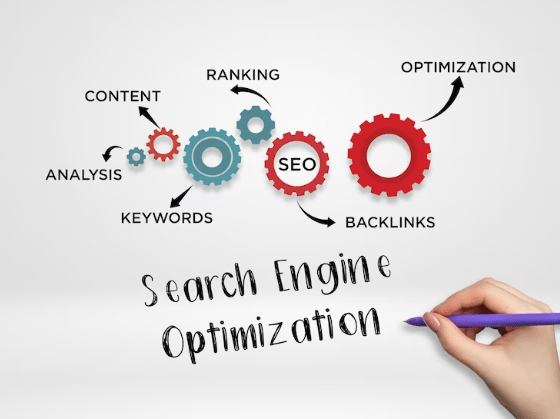
SEO is the process of optimising a website to rank higher in organic search results. This process involves several on-page and off-page techniques to improve a website’s visibility and attract unpaid traffic from search engines like Google, Bing, and others. Let’s delve into the benefits and challenges of SEO.
Benefits of SEO
1. Sustainable long-term traffic
Unlike paid advertising methods, which stop driving traffic once the budget runs out, SEO offers sustainable long-term traffic. Once a website achieves a high ranking on SERPs, it can continue to attract visitors for an extended period, making it a valuable investment for businesses.
2. Builds brand credibility and authority
Websites that appear on the first page of search results are often perceived as more credible and trustworthy by users. By optimising their online presence, businesses can build brand authority and establish themselves as industry leaders, which fosters a positive perception among potential customers.
3. Cost-effective compared to PPC in the long run
While SEO requires an initial investment in time, resources, and expertise, it proves to be more cost-effective in the long run compared to Pay-Per-Click (PPC) advertising. Once a website achieves a good ranking, the organic traffic it attracts doesn’t incur additional costs per click, unlike PPC campaigns.
4. Better user experience on the website
SEO focuses on improving search engine rankings and enhancing user experience. Websites optimised for SEO are often faster, more user-friendly, and mobile-responsive, providing visitors with a seamless browsing experience.
Challenges of SEO
1. Takes time to see significant results
SEO is not a quick-fix solution, and it takes time to see substantial results. Building a strong online presence, earning backlinks, and climbing up the search rankings require patience and consistent effort.
2. Constantly evolving search engine algorithms
Search engines continuously update their algorithms to provide more relevant and high-quality search results. Keeping up with these changes and adapting SEO strategies accordingly can be challenging for businesses and SEO professionals.
3. Competing for high-value keywords
High-value keywords have a significant search volume and commercial intent and are highly competitive. Many businesses vying for the exact keywords can make it difficult for smaller companies to rank well for them.
Decoding PPC (Pay-Per-Click) Advertising

PPC advertising is a model where advertisers pay a fee each time their ad is clicked. It involves bidding on specific keywords relevant to the target audience. When someone searches for those keywords, the ad appears on top of the search results or on relevant websites. This online advertising form has advantages and limitations that can significantly impact a brand’s marketing efforts.
Advantages of PPC
1. Targeted Audience
One of the most significant advantages of PPC advertising is the ability to target a specific audience. By bidding on relevant keywords like “Best PPC Agency in Chandigarh,” advertisers can display their ads to people actively searching for PPC services in the area. This targeted approach ensures that the ad reaches the right audience, increasing the likelihood of conversions.
2. Instant Visibility
Unlike organic search engine optimization (SEO) efforts, which take time to show results, PPC ads provide instant visibility. Once the campaign is set up, the ads can appear on search engine results pages (SERPs) immediately.
3. Cost Control
With PPC advertising, businesses have complete control over their budget. Advertisers can set daily or monthly spending limits, ensuring they stay within your desired budget. This cost control allows the agency to allocate resources efficiently and accurately measure the return on investment (ROI).
4. Measurable Results
PPC platforms like Google Ads provide comprehensive analytics, enabling agencies to track the performance of their campaigns. Metrics such as clicks, impressions, conversions, and click-through rates (CTRs) help the PPC Agencies in Chandigarh to understand campaign effectiveness and make data-driven decisions for optimization.
Limitations of PPC
1. Costly Clicks
While PPC offers control over budget, the cost per click (CPC) for popular keywords can be high, especially in competitive industries like digital marketing. This can make it challenging for smaller agencies with limited budgets to compete effectively.
2. Ad Fatigue
PPC ads targeting the same audience over time can become less effective due to ad fatigue. Users may become desensitised to the same message, leading to a decrease in CTRs and conversions. The PPC Agencies should constantly refresh ad creatives and copy to combat ad fatigue effectively.
3. Ad Blocking
Some internet users utilise ad-blocking software, preventing PPC ads from being displayed. This can reduce the potential reach of the PPC campaign, limiting its effectiveness.
4. Skill and Knowledge Required
Running successful PPC campaigns requires expertise, continuous monitoring, and optimization. The Best PPC Agency in Chandigarh works with skilled professionals who understand the intricacies of PPC advertising and can adapt to the ever-changing digital landscape.
Key Differences Between SEO and PPC
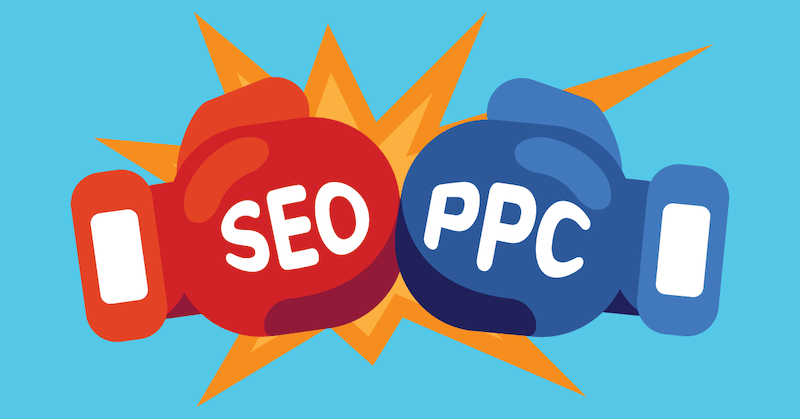
Search Engine Optimization (SEO) and Pay-Per-Click (PPC) are two fundamental digital marketing approaches to increase a website’s visibility and drive traffic. Each method has its unique characteristics, benefits, and costs. Here are the key differences between SEO and PPC
Cost
SEO: The primary cost associated with SEO is the investment in time and resources to optimise a website organically. While it may take longer to see results, once a website gains a high ranking in search engines, the traffic generated is essentially free. However, the initial effort and ongoing maintenance can be time-consuming and require expertise.
PPC: Pay-Per-Click advertising, on the other hand, involves paying for each click on your ad. The cost depends on the keywords’ competitiveness and your ad campaign’s effectiveness. While PPC can deliver immediate results and control over spending, it can become costly, especially for highly competitive industries.
Visibility and Ranking
SEO: Search Engine Optimization focuses on improving a website’s ranking in organic search results. A higher ranking increases visibility and credibility, as users tend to trust organic search listings more. However, achieving top rankings can be challenging due to fierce competition and changing search engine algorithms.
PPC: Pay-Per-Click ads appear above or below organic search results and are marked as “sponsored” or “ad.” While they provide immediate visibility at the top of the page, the visibility ends when the ad campaign stops, or the budget is exhausted.
Targeting
SEO: Organic search traffic is generally more diverse and reaches a broader audience since it is based on relevancy and user intent. However, precise targeting can be challenging, and it may take time to gain traction for specific keywords.
PPC: Pay-Per-Click campaigns offer advanced targeting options, allowing marketers to display ads to specific demographics, locations, interests, and devices. This level of control ensures that ads are shown to the most relevant audience, potentially increasing conversion rates.
Credibility and Trust
SEO: Websites ranking high organically are often perceived as more credible and trustworthy by users. Since SEO is based on optimising content and providing value, it helps build authority and long-term credibility in the eyes of the audience.
PPC: While PPC can provide immediate visibility, some users may be sceptical of sponsored ads. They may perceive them as less trustworthy since they are explicitly paid for promotion.
SEO and PPC are valuable tools in digital marketing, and their effectiveness depends on the specific goals and budget of the business. SEO is a long-term strategy that builds credibility and organic traffic, while PPC offers quick visibility and precise targeting but requires ongoing investment. To achieve the best results, many businesses combine SEO and PPC strategies.
Choosing the Right Strategy for Your Business
Choosing the right SEO (Search Engine Optimization) or PPC (Pay-Per-Click) strategy for your business is a critical decision that can significantly impact your online presence and success. Both approaches have their merits and limits. Understanding your business goals, budget considerations, competition analysis, and timeframe for results is essential to make an informed choice.
1) Analysing Business Goals
Analysing your business goals is the first step in determining whether SEO or PPC is the right fit. SEO is the way to go if you aim to build a sustainable online presence and increase organic traffic. It focuses on optimising your website’s content, structure, and backlinks to naturally rank higher in search engine results. On the other hand, if you seek immediate visibility and are willing to invest in advertising, PPC can deliver targeted traffic through paid ads, with results appearing almost instantly.
2) Budget Considerations
Budget considerations play a vital role in making the decision. SEO generally demands a more extended investment period as it takes time for search engines to crawl,index, and rank your site. It can be cost-effective in the long run but requires patience. On the contrary, PPC allows you to control your daily or monthly spending, making it suitable for businesses with immediate marketing needs or smaller budgets.
3) Competition Analysis
Conducting a competition analysis is crucial to identify the level of competition in your industry and how it impacts your strategy. In highly competitive niches, achieving high rankings through SEO might be challenging, and PPC can be a viable option to gain visibility alongside organic efforts. Conversely, if your competitors aren’t heavily invested in SEO, you might have a better chance to dominate organic search results.
4) Timeframe for Results
Timeframe for results is another factor to consider. PPC is the way to go if you need quick results and instant traffic. Your ads will start running as soon as your campaign is set up, and potential customers will see them. However, once you stop the PPC campaign, the traffic ceases. While taking longer to show results, SEO builds a solid foundation for sustained organic traffic, which persists even if you scale back on your efforts later.
The decision between SEO and PPC should be based on carefully analysing your business goals, budget, competition, and desired timeframe for results. Many businesses find that a combination of both strategies yields the best results, leveraging the strengths of each approach to maximise their online visibility, reach, and conversion potential.
Combining SEO and PPC for Optimal Results
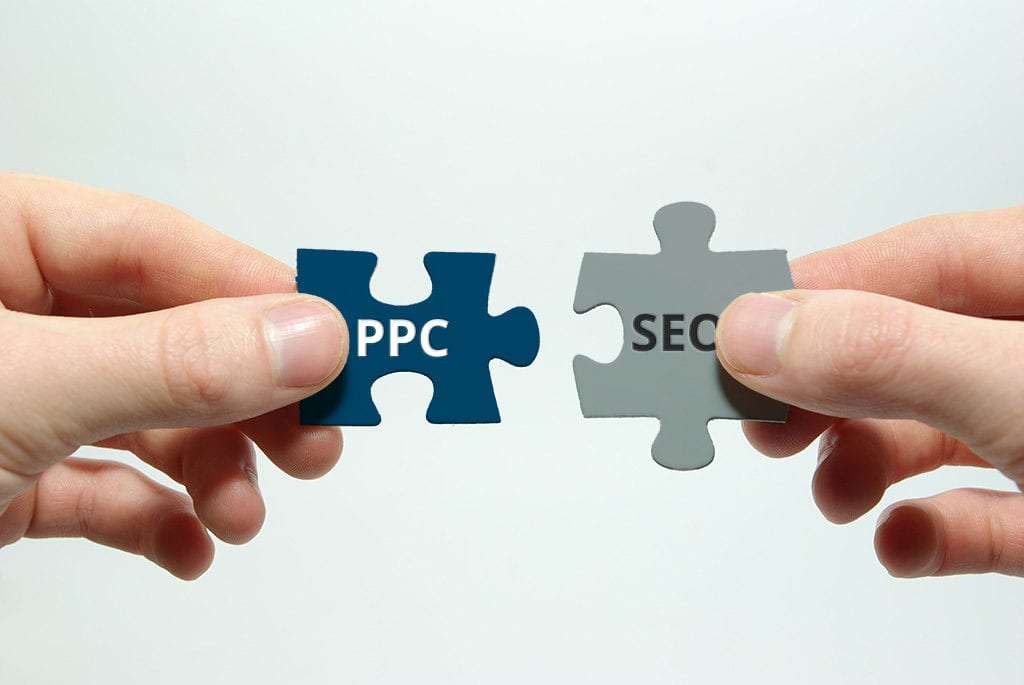
Combining SEO and PPC (Search Engine Optimization and Pay-Per-Click) strategies can lead to optimal results in driving targeted traffic, maximising visibility, and achieving overall digital marketing success. By integrating these two approaches, businesses can enjoy the benefits of a comprehensive online presence.
SEO enhances organic search rankings, increasing long-term visibility and credibility. It focuses on optimising website content, keywords, and backlinks. On the other hand, PPC allows for immediate exposure through paid advertisements, delivering instant traffic and data for analysis.
When utilised together, SEO and PPC can complement each other’s strengths, enabling businesses to identify high-converting keywords, refine marketing strategies, and dominate both organic and paid search results. The synergy achieved through this collaboration can ultimately boost website traffic, conversions, and revenue.
Find the Right Digital Marketing Agency in Chandigarh

A strong online presence is crucial for success in the modern business landscape. To achieve this, many businesses in Chandigarh are turning to digital marketing agencies to help them reach their target audience effectively. However, with numerous options available, choosing the right agency that aligns with your specific needs can be challenging. Here are some essential factors to consider when searching for the perfect digital marketing agency in Chandigarh
1. Experience and Expertise
One of the first things to look for in a digital marketing agency is their experience and expertise in the field. A well-established agency “Jamani Speshpro LLP” has a track record of successful campaigns and a team of professionals with specialised skills in various digital marketing aspects, such as SEO, social media marketing, content marketing, PPC, and more. Look for agencies that have worked with businesses in your industry or niche, as they will better understand your target audience and unique marketing challenges.
2. Client Testimonials and Case Studies
A reliable digital marketing agency should be able to provide you with client testimonials and case studies showcasing their past work. These testimonials and case studies demonstrate the agency’s ability to deliver results and provide insight into its approach and methods. It’s advisable to check reviews and ratings on various platforms to understand the agency’s reputation and client satisfaction levels comprehensively.
3. Customised Solutions and Strategies
Every business is unique, and a one-size-fits-all marketing approach may not yield optimal results. The right digital marketing agency will take the time to understand your business, goals, and target audience. They should be able to develop customised solutions and strategies tailored to your specific needs. Avoid agencies that rely on generic templates or cookie-cutter strategies.
4. Communication and Reporting
Transparent and effective communication is crucial in any business relationship. A reputable digital marketing agency will keep you informed about the progress of your campaigns, provide regular updates, and be responsive to your queries and concerns. Additionally, they should offer detailed and easy-to-understand reports that measure the performance of your marketing efforts and provide insights into the strategies’ effectiveness.
Conclusion
In the competitive digital marketing landscape, choosing between SEO and PPC (Pay-Per-Click) digital marketing agencies in Chandigarh plays a crucial role. SEO focuses on organic, long-term growth, optimising website content and structure to enhance search engine rankings. On the other hand, PPC allows for immediate visibility by paying for ad placements. The decision hinges on various factors, including budget, timeline, and marketing objectives. Investing in SEO proves beneficial over time for businesses seeking sustainable, cost-effective growth. Meanwhile, PPC can swiftly generate leads and boost traffic, making it ideal for short-term campaigns or specific promotions. Ultimately, a well-rounded digital marketing strategy may combine elements of both approaches for optimal results.


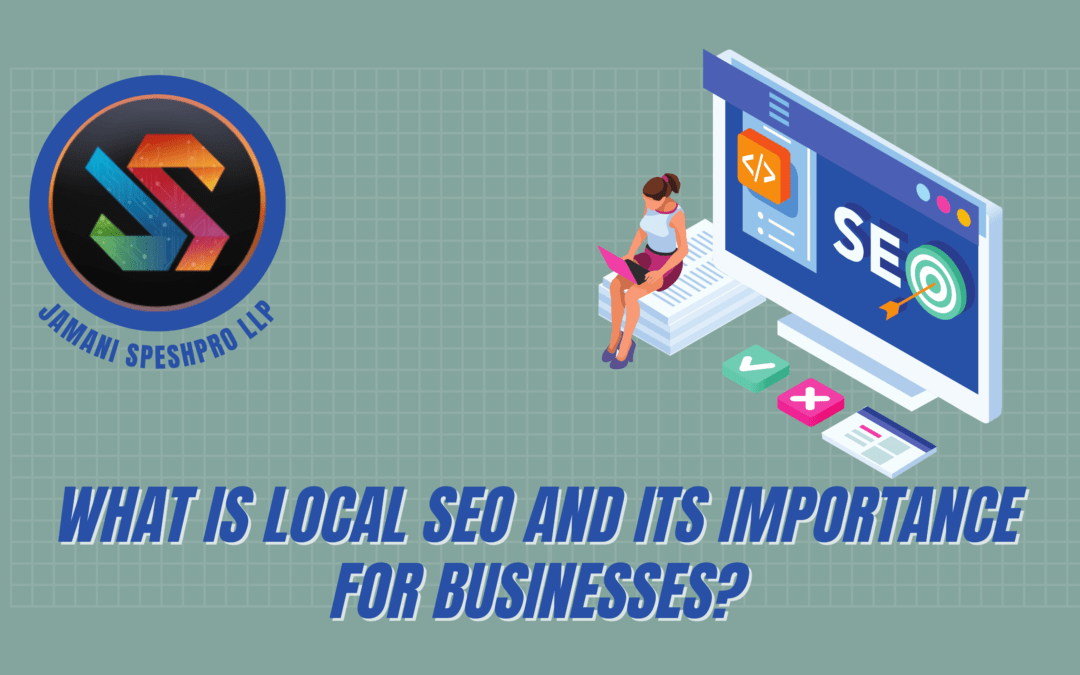
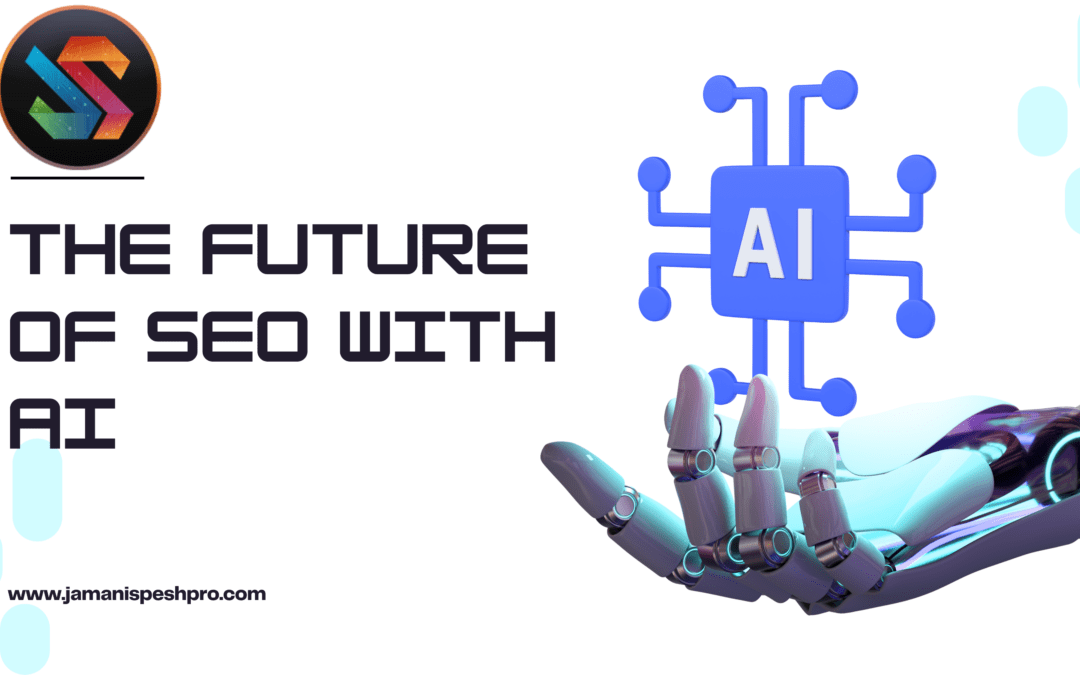

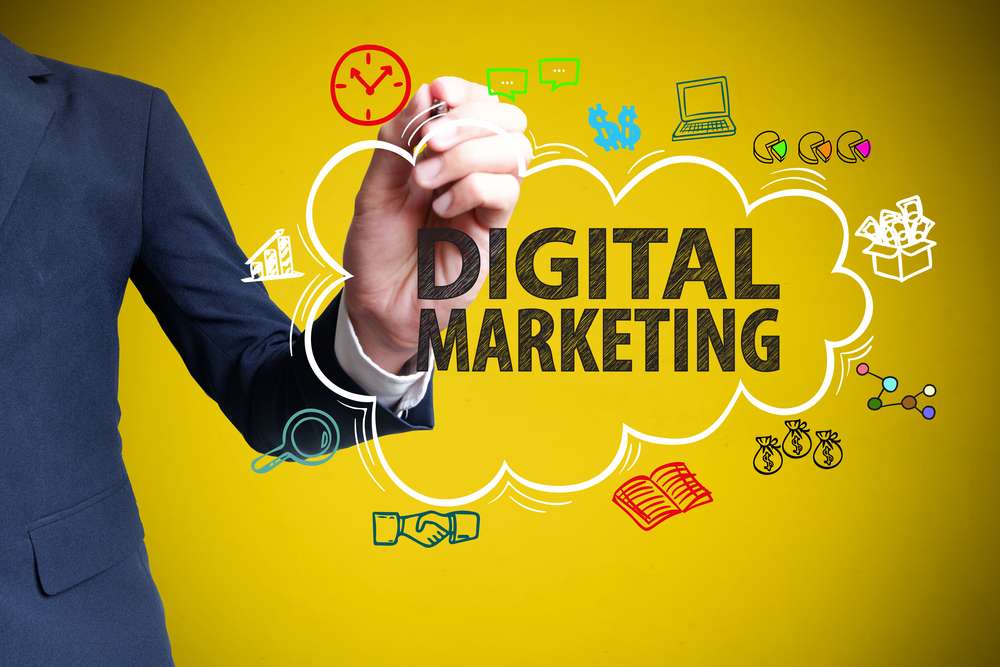




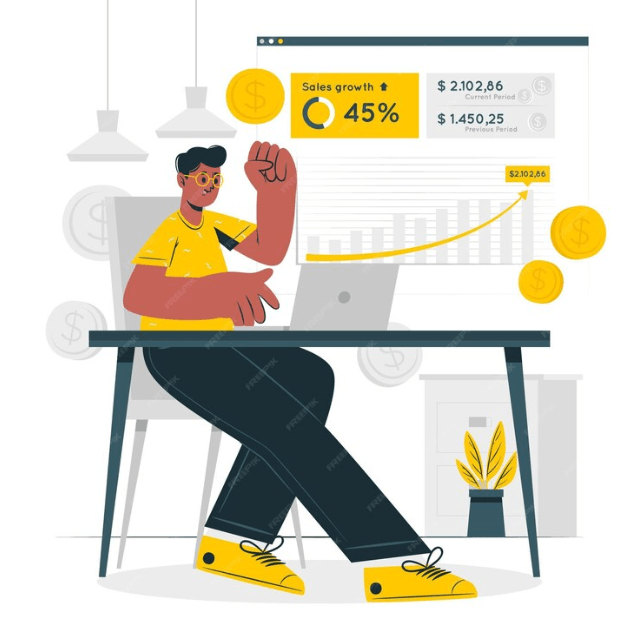
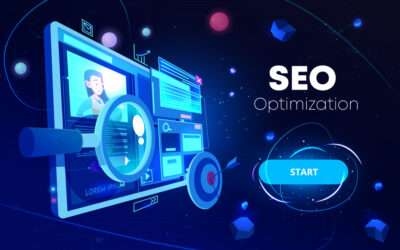
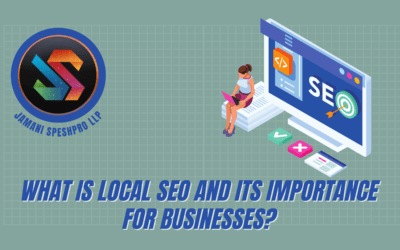
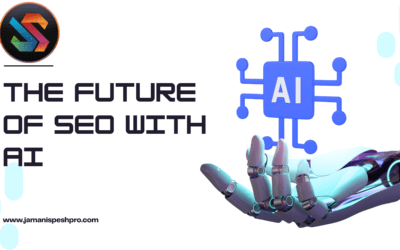
0 Comments